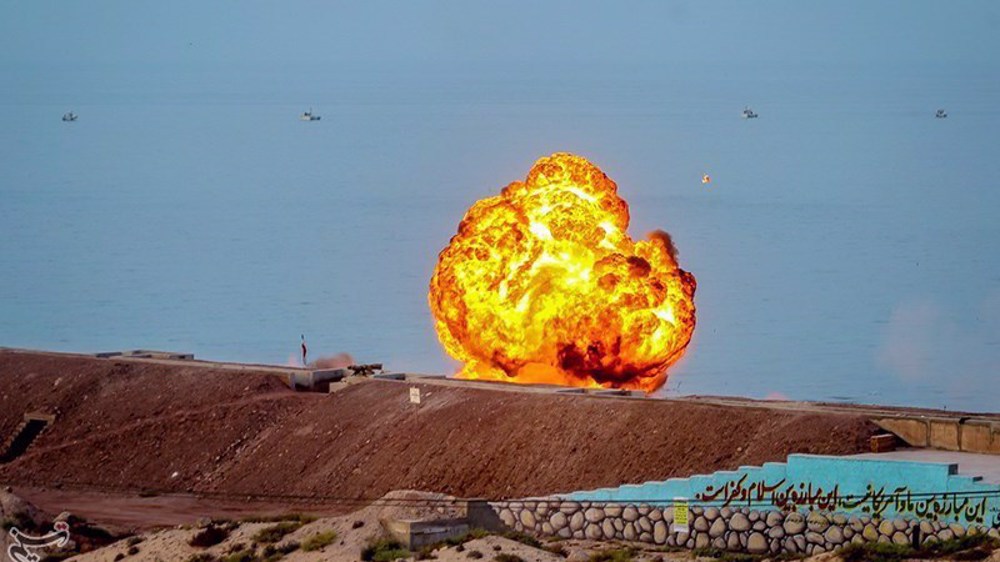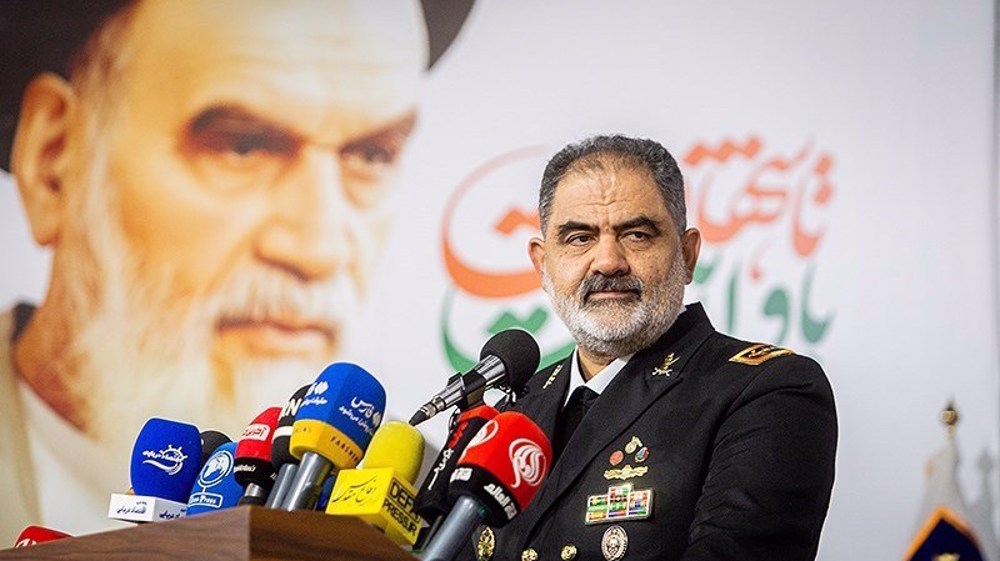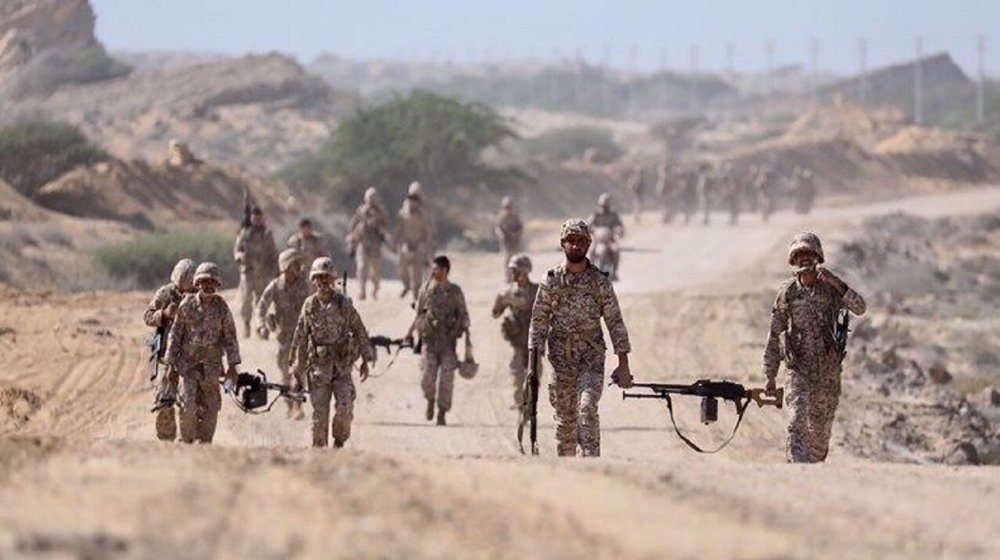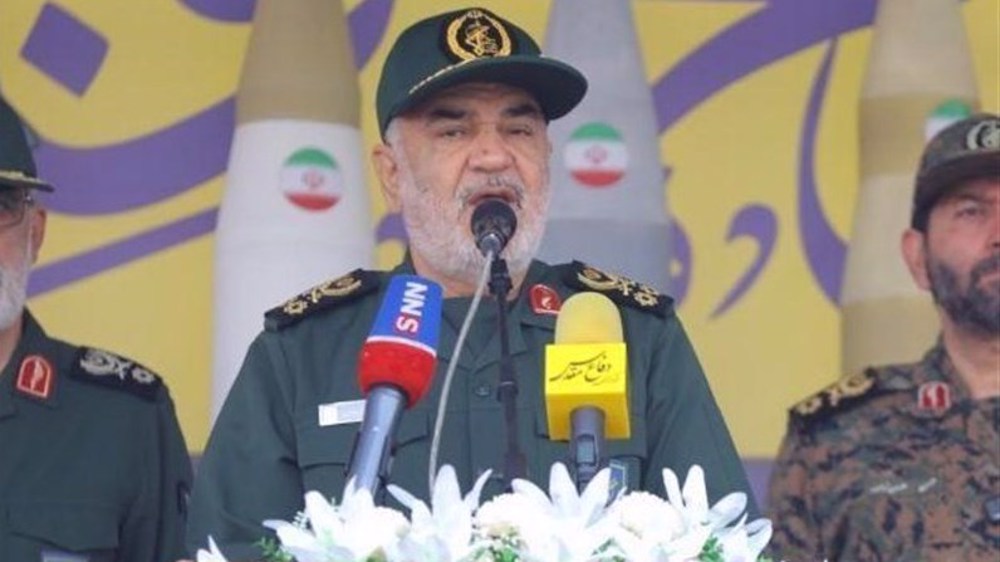IRGC Navy: Persian Gulf drills conducted in ‘wargame’ style
The Navy of Iran’s Islamic Revolution Guards Corps says the IRGC’s ongoing drills simulate actual warzone engagement with real enemy forces and are meant to send across a message of warning to those potentially seeking to undermine the country’s security.
“These maneuvers have taken shape based on [the notion of] wargame and the strategies that we employ in the Persian Gulf and the country’s [general] southern expanse,” IRGC Navy Commander Rear Admiral Alireza Tangsiri said on Wednesday.
“The maneuvers drill the manner of establishing security in the Persian Gulf and confronting those [potentially] disturbing this security,” he added.
Although, the exercise does not carry any warning message to our friendly and neighboring countries, “it serves as a warning for those, who could seek to disrupt our security,” the commander said.
Not only would not the Corps allow the Islamic Republic’s enemies to perpetrate any “act of misuse” in the waters, but also it would not tolerate any such measure against any spot of the country’s expanse, he asserted.
Tangsiri was speaking on the sidelines of large-scale drills by the Corps, codenamed Payambar-e A’zam (The Great Prophet) 14, that has enlisted both the elite force’s Navy and its Aerospace Division.
During the maneuvers that spanned the general area of Hormozgan Province, west of the strategic Hormuz Strait, and the Persian Gulf, the Corps staged “all-out and multi-layer” strikes against the life-size replica of a Nimitz-class US aircraft carrier.
The IRGC’s servicemen began the episode by destroying the mock carrier’s accompaniment with coast-to-sea fire. State television aired footage showing the damage caused to the mock aircraft carrier following the operational juncture, and the IRGC commandos’ rappelling onto the vessel.
In an unprecedented move, the IRGC also fired ballistic missiles from underground launch facilities during the drills.
The drills have been monitored by Iran’s first military satellite Nour (Light)-1 that was launched by the Corps into orbit in April. Simultaneously, the satellite relayed a high-resolution vivid image of the al-Udeid Airbase in Qatar that is reportedly the largest United States’ base in West Asia.
On Tuesday, CNN reported that following the launch of ballistic missiles by the Corps during the drills, al-Udeid and al-Dhafra, another airbase in the United Arab Emirates, were temporarily put on “high alert” and the American forces deployed there were asked to stay in bunkers.
Tangsiri, meanwhile, offered more details of the operations undertaken during the “wargame-style” maneuvers.
He cited designing and deployment of extensive rocket fire, amphibious naval air force and its cruise missiles, conduct of defensive and offensive mine-planting that sought to practice cutting off of enemy connection lines, and engaging of a domestically-built missile-carrying helicopter.
Coastal defense, destruction of amphibious, logistical, and combat enemy vessels using coast-to-sea and seaborne missile power were among some other measures drilled during the exercise.
“Foreigners travel a thousand miles and carry out a threatening drill against our speedboats here, but the Persian Gulf is our home, and this is the 14th edition of the Payambar-e A’zam (The Great Prophet) that we are carrying out here,” the commander noted.
VIDEO | Paris march in support of Palestine women
VIDEO | ICC issues arrest warrants for Israeli prime minister, ousted regime war minister
120 Palestinians perish as Israeli war machine keeps ravaging Gaza
VIDEO | Struggles of Palestinian women amidst war, displacement
VIDEO | Hezbollah rains attack drones down on elite Israeli brigade
VIDEO | US biased mediation fails
Leader: All captains of criminal, Zionist, terrorist gang must be prosecuted
Iran further raises its oil prices for Chinese buyers: Report











 This makes it easy to access the Press TV website
This makes it easy to access the Press TV website